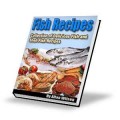Salespage Snapshot:

>>> Click Here To View Full Sales Page…
Table of Contents
Introduction
Why Should You Bother With Seasonings When Cooking?.
The History of Using Seasonings in Cooking.
The Ten Most Common Spices
1. Basil.
2. Bay leaf
3. Caraway seed
4. Chervil
5. Chives
6. Marjoram
7. Rosemary
8. Nutmeg
9. Paprika.
10. Sage
Ten Seasonings Every Cook Should Keep on Hand
Ten Ways to Spice Up Everyday Meals with Seasonings
1. Lemon Pepper Chicken
2. Salads
3. Spaghetti
4. Macaroni and Cheese.
5. Soup
6. Pasta
7. Rice
8. Burgers
9. Pizza
10. Tacos
Tips for Using Seasonings When You’re Cooking
Growing Your Own Herbs for Seasonings
Five Easy to Grow Herbs
Tips for Taking Care of Your Herb Garden.
Five Tips for Storing Seasonings
Five Essential Italian Seasonings.
Five Essential Cajun Seasonings.
Five Essential Jamaican Seasonings.
Five Essential Mediterranean Seasonings.
Five Essential Indian Seasonings
Five Essential Asian Seasonings.
Five Essential BBQ Seasonings.
How to Pick the Best Quality Seasonings
Tips for Seasoning Poultry
Tips for Seasoning Steak
Tips for Seasoning Game.
Tips for Seasoning Vegetables.
Making Your Own Salad Dressings
Tips for Seasoning Soups
Ten ways to spice up your favorite desserts with seasonings
Ten Tips for Blending Your Own Seasonings.
1. Store your base herbs and spices properly.
2. Don’t add too many spices and herbs into a mix
3. Taste your herbs and spices individually.
4. Know the strength of different seasonings.
5. Fall back on the basics
6. Know how different herbs and spices react while cooking
7. Use more fresh herbs than dried herbs
8. Use the right equipment.
9. Mix the herbs and spices thoroughly
10. Throw out any seasoning mixes that aren’t used within four months.
Seasoning with Salt.
The Three Best Salt Substitutes.
What are Organic Seasonings?.
Are Organic Herbs and Spices Better?
The Five Best Reasons to Only Use Organic Seasonings.
1. Organically grown herbs and spices are healthier for you
2. You’re helping the environment
3. You’re helping small businesses.
4. Organic doesn’t have to be expensive
5. You can Feel good about serving organics to anyone
How to Save Money on Herbs and Spices.
Conclusion.
Sample Content Preview
Seasonings can keep you healthy – Lots of the herbs and spices that are commonly used in seasonings have medicinal properties. Using these herbs and spices and other seasonings in the foods that you can cook can help boost your immune system and fight off common illnesses. Using particular seasonings can also help alleviate symptoms of diseases like Arthritis, Fibromyalgia and Chronic Fatigue Syndrome. In many cultures herbs and spices are used as medicine in addition to being used as seasonings.
Seasonings give food variety – These days, people need to cut back on their food budgets in order to have the money they need to pay other bills. When you use seasonings you can eat the same foods more frequently without getting sick of them. You can also transform leftovers into an entirely new dish just with seasonings. If money is tight and you find yourself eating the same meal more than two days a week then learning to use seasonings can show you how to prepare the same ingredient in many different ways that you don’t feel like you’re eating the same meal every single day.
Seasonings can make food healthier – If you substitute herbs and spices for a thick, cream sauce on your favorite pasta dish or use herbs on your popcorn instead of salt you can cut a lot of calories and fat out of your diet. If you’re trying to lose weight seasonings can make the food you eat tasty without being high in calories.
The History of Using Seasonings in Cooking
The history of the use of seasonings is almost as along as the history of humans. The use of seasonings for food started in an accidental way when primitive humans discovered that the leaves, grasses, twigs and sticks that they used to prepare and cook their food and also wrapped leftover food in changed the taste of that food. For centuries people didn’t know of any way to preserve the food that they had cooked to keep it fresh so the food that was available usually smelled and tasted pretty bad. Using seasonings was a good way to mask the bad smell and taste and also keep the food a little bit fresher.
As civilization progressed spices and seasonings became extremely important in every culture. As a result seasonings become a sort of commodity. Many spices and seasonings that we commonly use today were considered more valuable than money in the ancient world because in many areas at that time spices and seasonings were very difficult to get. They were not commercially grown and harvested so spice merchants that had a steady supply of spices and seasonings became the most important merchants in a town very quickly. In the ancient world a handful of a spice like cardamom could cost more than an average worker’s yearly salary, and slaves were bought and sold for peppercorns and other seasonings.
Because the people of the Roman Empire preferred pepper to any other spice, their demand for pepper was nearly insatiable throughout the Roman era. Nearly every wealthy Roman would have pepper on his table during meals the way that we use at pepper at meals today except back then it was much more expensive and more of a status symbol. Kings and queens would regularly offer spices along with gold as tributes to their fellow rulers and wars were often fought just to gain access to places where spices were abundant.
During this time Arab traders ventured into Europe to sell spices and almost instantly the Europeans were hooked. The Arab traders made sure that they kept their spice suppliers and their supply routes secret and they were able to build huge fortunes selling spices to the European nobility. During this time the Phoenicians became the most well known spice sellers because of their unique location. The Phoenicians traded at a point right where the land route from India met the sea route from the Mediterranean so almost every spice that was known and used during that time came to the Phoenicians. The Phoenicians were experienced traders and they kept a tight hold on their spice monopoly for decades.
Other Details- 30 Articles (TXT)
- 2 Ebook (PDF, RTF), 35 Pages
- 7 Part Autoresponder Email Messages (TXT)
- 1 Salespage (HTML, TXT)
- 3 Ecovers (JPG)
- File Size: 1,161 KB














